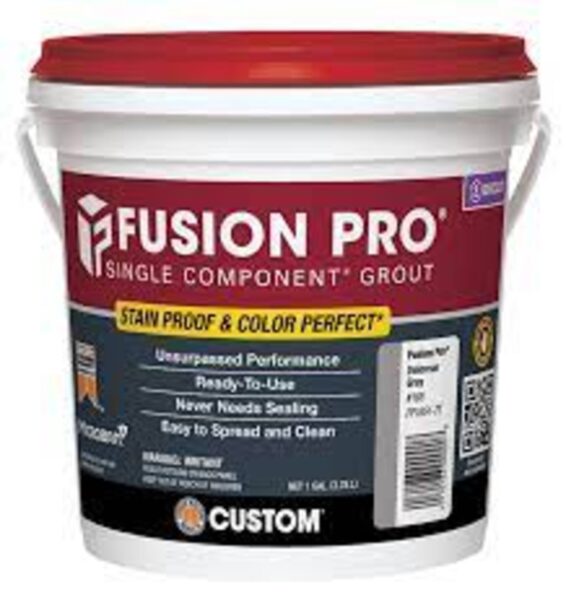Production plants, factories, and processing facilities comprise challenging environments with heavy impacts, vibrations, extreme temperatures, corrosive chemical contact, and rigorous cleaning agents.
Traditional tile grouts crumble quickly when exposed to such demanding mechanical, thermal, and chemical conditions common across industrial settings.
Yet stable, smooth joint filling between tiles, equipment, and floors remains crucial. This is where high-performance industrial grouts become necessary – specially engineered to withstand the most aggressive exposures found in manufacturing zones.
They resist deterioration from scraping impacts, forklift traffic, daily sterilization washes, and temperatures from -100°F freezers up to 500°F ovens.
they are Chemical resistant enduring everything from strong acids to alkaline detergents. Withstand decades of punishment without needing replacement.
Where other grouts literally dissolve away after months, industrial grouts maintain critical infrastructure integrity and protection in the most demanding production environments.
What is Industrial Grout?
Industrial grout refers to high-performance grout engineered to withstand demanding conditions in manufacturing, food production, chemical processing and other industrial settings. durability, and performance properties compared to conventional tile grouts.

Purpose of Industrial Grout
The purpose of industrial grout is to fill joints and voids exposed to heavy duty environments common in industry such as:
- Aggressive chemical contact
- Extreme hot/cold temperatures
- High impacts
- Cleanroom conditions
- Heavy machinery vibrations
Specially formulated industrial grouts resist damage from these conditions to provide smooth, protective joint filling between tiles, equipment, and flooring.
Types of Industrial Grout
Common types of industrial grout include:
- Epoxy – Extremely durable binder resistant to chemicals and heat
- Polysulfide – Flexible, oil proof; used where movement expected
- Urethane – Very durable; handles cleaning agents well
- Cementitious – Budget option but less flex and lower chemical resistance
Specialized options like furan and polyester resin grouts also exist. Choose grout chemistry to suit exposure levels.
Epoxy Grout
Epoxy grouts are extremely durable and resistant to chemicals, impacts, and heat. The crosslinked epoxy binder bonds tenaciously to surfaces, maintaining integrity. Epoxy grouts come in various formulations to suit different temperature ranges and chemical exposures. High mechanical strength makes them suitable for heavy traffic areas.
Polysulfide Grout
Polysulfide grout contains polysulfide polymers that provide flexible, oil proof properties. This resists cracking from substrate movements in dynamic environments. Polysulfide works well in locations with frequent thermal cycling or vibration forces from heavy equipment. It has good chemical resistance also.
Urethane Grout
Urethane industrial grouts offer very good overall durability, stain protection, and flexibility. They resist many cleaning agents and chemicals, enduring rigorous deep cleaning. Urethane bonds tightly, functioning well in wet environments given suitable joint design for wetting/drying.
Cementitious Grout
While having lower flexibility, chemical, and temperature resistance versus epoxy and urethanes, cement-based industrial grouts provide a budget option. Addition of polymers boosts durability and physical performance over standard cement. These work where chemical or thermal threats are moderate.
Advantages of Industrial Grout
Industrial grouts provide:
- Chemical resistance
- Withstands hot and cold extremes (-100°F to 500°F)
- High strength 2000+ PSI compressive strength
- Oil proof and waterproof
- Withstands rigorous steam cleaning
- Excellent bonding and sealing
- Abrasion resistance for heavy traffic
These features maintain critical joint integrity against hazards other grout types can’t endure. Customized industrial grout is engineered per application.
Applications of Industrial Grout
Here are some of the key applications for industrial grout:
Food and Beverage Facilities –
Industrial grout is used extensively in commercial kitchens, meat packing plants, bottling areas, food processing equipment lines, and other food/beverage facilities .
They are used to seal and protect tiles from chemical spills, hot water and steam cleaning, and heavy impacts.
Epoxy and urethane grouts work well in wet environments.
Pharmaceutical Plants –
Strict hygienic requirements in pharma manufacturing and sterile environments make durable, easily cleaned industrial grouts necessary.
Chemical resistance also helps withstand repeated cleaning/sterilizing agents.
Refineries and Chemical Plants –
Refineries use acid, alkali and chemically resistant epoxy or resin based grouts in areas handling corrosive chemicals and hydrocarbons. Extreme durability protects against chemical deterioration.

Power Generation –
Coal, nuclear, hydroelectric, and geothermal power plants often require grouts resisting temperatures from freezing up to 400°F+ as well as chemical or radioactive exposures.
Transportation Facilities –
Vehicle assembly plants, maintenance garages, and transportation equipment installation areas often select flexible, oil-resistant polysulfide or urethane industrial grouts.
Heavy Industry –
Mills, factories, foundries, fabrication facilities exposed to heavy impacts, vibration forces, and mechanical abuse install appropriately durable cementitious or epoxy industrial grout mixtures. Chemical resilience also helps.
Conclusion
Choosing the right industrial grout composition allows effective protection of tile joints and voids exposed to demanding mechanical, chemical, and thermal conditions across factories, plants and processing facilities. Consider epoxy, polysulfide, urethane or specialized resin formulations depending on environmental factors and production use cases.






